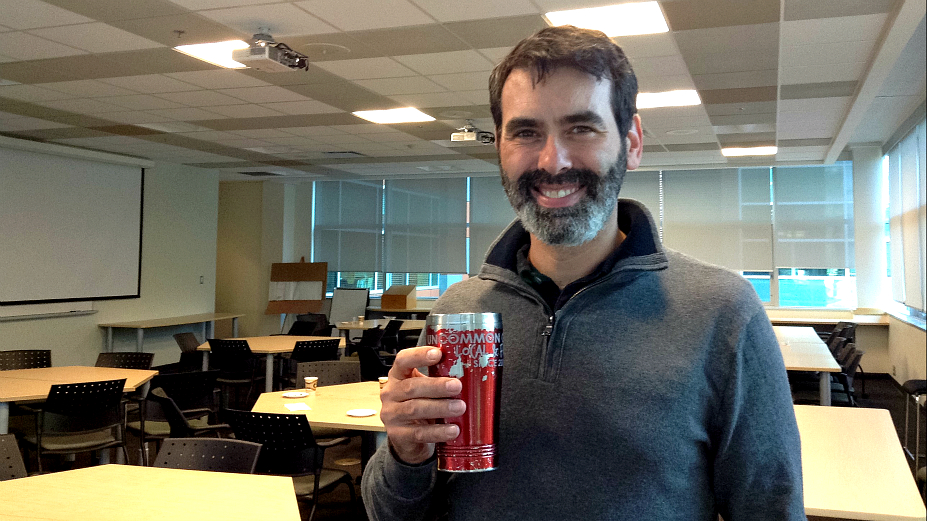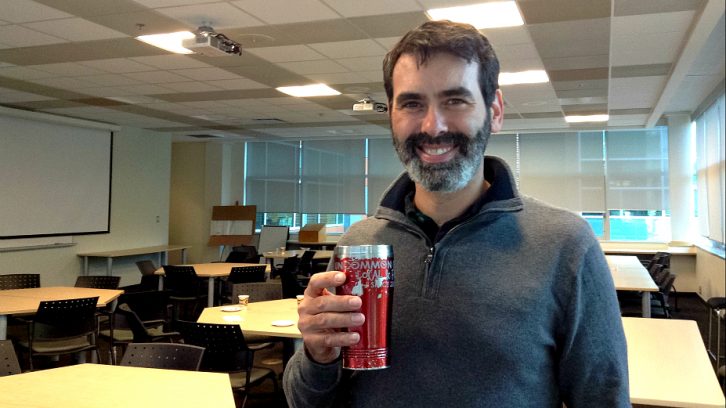Business
The secret life of fair trade and the coffee industry
‘The gap is a lot smaller than a lot of people think’

caption
Fridell drinking coffee from his fair trade coffee mug after the seminar.
caption
Gavin Fridell drinking coffee from his fair trade coffee mug after the seminar.To lift poor farmers in Ethiopia and other coffee-producing countries above poverty line, Dr. Gavin Fridell says the global market price for coffee would have to be three times what it is now.
Fridell touts the benefits and realities that fair trade has on small-scale farmer organizations, and how purchasing fair trade coffee can help improve their lives.
Fridell held the first seminar of a fall seminar series hosted by Saint Mary’s University’s School of the Environment on Friday. His presentation was called, “Does Fair Trade Fight Poverty?”
“Having fair trade is not necessarily enough to lift these farmer’s income out of poverty level,” said Fridell in an interview. “But it is still more than they otherwise would get.”
Fridell describes fair trade as a network of farmers, workers and purchasing companies that can be anything from Starbucks to Just Us! Coffee to Nike. Essentially, it is any company that chooses to buy fair trade.
He emphasizes that with all of the work that coffee farmers do, they are often left in poverty.
“If consumers were to pay $22 for a pair of jeans, for example,” he said during the seminar, “they would only need to pay an extra three to five cents to support and help those who make them in the factory.”
“The gap is a lot smaller than a lot of people think.”
If corporations buy fair trade, coffee farmers get about 10 cents more than the global market price, said Fridell during the seminar. “For them, every cent matters.”

caption
The global market price for coffee is $1.75 per pound.Karen Shepard, who attended the seminar, works with Nova Scotia’s Just Us! Coffee, one of the few fair trade certified coffee organizations in the country. She found the seminar useful and helpful for promoting sustainability.
“Not many consumers are aware of what fair-trade looks like,” said Shepard. “I personally think we can make a big difference.”
With fair trade, farmers get a guaranteed minimum price and a social premium on top of their pay. The fair trade minimum price covers the cost of sustainable production for product in a particular region, and it depends on the initial cost of the coffee and how much corporations want to buy.
The social premium is money the community can put towards education, health care or infrastructure, Fridell said.
